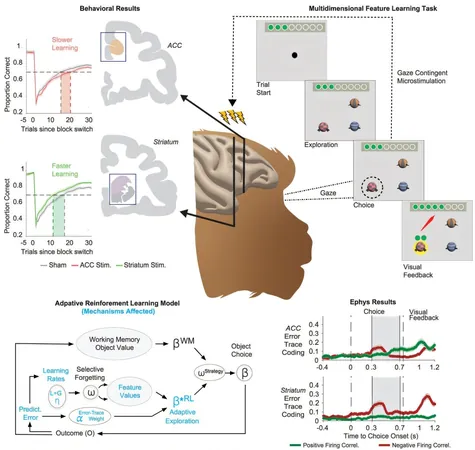
Revolutionary Brain-to-Computer Interfaces Could Unlock New Levels of Cognition
2025-07-11
Author: Siti
Pioneering Research at Vanderbilt Could Change Cognitive Treatment Forever
A groundbreaking study spearheaded by Thilo Womelsdorf, a professor of psychology and biomedical engineering at the Vanderbilt Brain Institute, is on the verge of transforming how we approach cognitive disorders. Published on June 10, 2025, in the prestigious journal Neuron, this research unveils the potential of brain-computer interfaces (BCIs) as 'electroceuticals' that could replace traditional medication in treating memory and cognitive disorders.
From Drugs to Electroceuticals: A Game-Changer for Cognitive Health
Currently, neurologists employ BCIs to assist patients battling debilitating conditions like Parkinson's disease and spinal cord injuries, particularly when conventional therapies fall short. These innovative devices act as electroceuticals, delivering targeted electrical stimulation to correct irregular brain signals, offering a groundbreaking alternative to pharmaceuticals.
How the Brain Sparks Learning: Insights into Cognitive Function
Cognition operates through the intricate dance of electrical impulses in our brains, much like muscles contracting for movement. This study delves into the complex web of brain areas responsible for memory and learning, revealing that two crucial structures in the cognitive network can significantly influence our ability to learn about visual objects.
The Study's Key Findings: Amplifying Brain Signals for Smarter Learning
Womelsdorf and his team made a stunning discovery: by amplifying the natural electrical impulses within this cognitive network using a brain-computer interface, they were able to enhance both learning speed and attention levels. "This study was predicated on the understanding that brief electrical signals in the brain are precursors to improved learning," Womelsdorf explained. "By boosting these intrinsic impulses, we sped up the learning process and heightened cognitive flexibility."
A Bright Future for Cognitive Rehabilitation?
With funding from the National Institute of Mental Health, this research sets the stage for rapid advancements in developing BCIs capable of restoring or enhancing cognitive functions in individuals facing cognitive disabilities. The implications are vast, and as technology progresses, the possibility of regaining lost cognitive abilities may soon be within reach.



 Brasil (PT)
Brasil (PT)
 Canada (EN)
Canada (EN)
 Chile (ES)
Chile (ES)
 Česko (CS)
Česko (CS)
 대한민국 (KO)
대한민국 (KO)
 España (ES)
España (ES)
 France (FR)
France (FR)
 Hong Kong (EN)
Hong Kong (EN)
 Italia (IT)
Italia (IT)
 日本 (JA)
日本 (JA)
 Magyarország (HU)
Magyarország (HU)
 Norge (NO)
Norge (NO)
 Polska (PL)
Polska (PL)
 Schweiz (DE)
Schweiz (DE)
 Singapore (EN)
Singapore (EN)
 Sverige (SV)
Sverige (SV)
 Suomi (FI)
Suomi (FI)
 Türkiye (TR)
Türkiye (TR)
 الإمارات العربية المتحدة (AR)
الإمارات العربية المتحدة (AR)